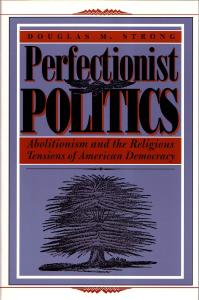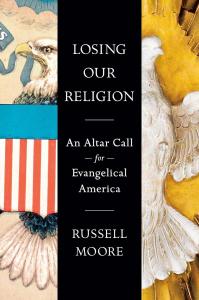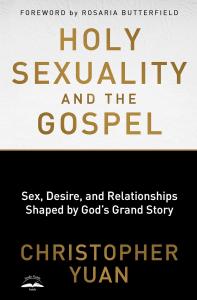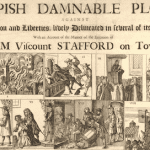American evangelicals have a categorical problem. I’m not talking about our denominations, our broader theological traditions, or even our distressing and distracting intramural infighting over second and third order issues. I’m talking about how we think socio-culturally, politically, and even economically. Although I have no doubt that this has always been a struggle for Christians in all cultural contexts, this post will focus on evangelicals in the United States.
The story about “ecclesiastical abolitionists” that Douglas Strong tells in Perfectionist Politics illustrates my point. The story is set in the 1830s and 1840s, when Congregationalists, Methodists, Baptists, and Presbyterians defined American evangelicalism and the Whigs and the Democrats defined America’s two party system. Strong argues that for many decades historians have portrayed the movement as divided between radicals like William Lloyd Garrison – who over time strayed from Christian orthodoxy – and evangelicals like Arthur and Lewis Tappan who represented the influential Protestant institutions of the “benevolent empire” in addition to being power brokers in the nation’s prominent churches and political parties. Garrisonians condemned America’s churches and political parties for failing to take an unapologetic stand against slavery, while evangelical abolitionists remained committed to their institutions regardless of how much that commitment hindered efforts to end slavery. Whereas evangelicals (sometimes called “conservative abolitionists”) prized the societal order maintained by religious and political institutions, Garrisonians prioritized liberty over a corrupt institutional social order. This oversimplified contrast is what passes for abolitionist history in most high school history high textbooks.
In Perfectionist Politics, however, focuses on ecclesiastical abolitionists as an overlooked group who pursued a principled third way. Ecclesiastical abolitionists were a subgroup of evangelical abolitionists whose combined commitment to orthodox Christian theology and rejection of corrupt institutions that defended the slavery status quo distinguished them from better known abolitionists. They emphasized liberty and opposed oppressive hierarchies. Unlike secular Garrisonians, they were not anti-institutional, and they embraced full civil rights for ex-slaves and other marginalized groups, a decidedly minority view among abolitionists. Their theological commitment to holiness – or perfectionism – convinced them that it was possible to create pure institutions that could effectively oppose – and ultimately even end – slavery.
In the 1830s these perfectionist Christians formed “comeouter” churches whose members were committed abolitionists. These churches were variously called “Union” churches, “Free Congregational” churches, Wesleyan Methodists, and Franckean Lutherans, among other names. Comeouter churches hosted both the 1848 Seneca Falls Woman’s Rights Convention and the 1853 service ordaining the first woman in US history, Antoinette Brown. Strong shows that it was people from these churches who were the primary movers and shakers in organizing the abolitionist Liberty Party in 1840, which peaked in its influence in the 1844 election.
Strong appropriately argues that they took the middle road, calling them moderates and reformers. calls these Christians moderates and reformers. However, I think it’s more helpful to see them as taking the “high road” because of how consistently they were trying to apply their commitment to biblical holiness to both their church life and their political involvement. Because “ecclesiastical abolitionists did not separate their lives into distinct sacred and secular spheres; rather, politics, commercial endeavors, and religious faith were understood in a holistic way, all framed by what may be termed an evangelical perfectionist worldview,” (7) they were able to both imagine and attempt to build a society with institutions and practices that were outside of cultural norms. Equally important, their response to the effete “reform minded” institutions of their day went beyond mere opposition without offering practical alternatives. Merely opposing something does not bring positive change.
While they obviously failed to create “successful,” “perfect” institutions, the revelation they grasped was that Christians – whose citizenship is in heaven (Philippians 3:20) – are not expected to only function within their given earthly cultural forms. They understood that believers are called to practice our heavenly citizenship before we get to heaven. This can look like many different things, but it should at least be evident in the language and the categories we use to think about this world.
Recently, I have been reading things that remind me of the ways in which American evangelicals struggle to employ uniquely Biblical concepts, categories, and principles. Too many of us are like the “conservative” evangelical abolitionists who, because of their commitment to the institutions of their culture, are unable to fundamentally change it for the better. Today’s evangelicals desperately need to think outside the boxes provided by popular culture, social media influencers, and left and right-wing media pundits. Failing to do so compromises our ability to be the salt and light change agents Jesus called us to be. We can’t change something by being just like it.
In recent months NPR interviewed Russell Moore, editor-in-chief of Christianity Today, and former president of the Southern Baptist Ethics and Religious Liberty Commission, about his most recent book, Losing our Religion: An Altar Call for Evangelical America. In his interview Moore relates these words to explain how he knew American Christianity was in a crisis:
Well, it was the result of having multiple pastors tell me essentially the same story about quoting the Sermon on the Mount parenthetically in their preaching – turn the other cheek – to have someone come up after and to say, where did you get those liberal talking points? And what was alarming to me is that in most of these scenarios, when the pastor would say, I’m literally quoting Jesus Christ, the response would not be, I apologize. The response would be, yes, but that doesn’t work anymore. That’s weak. And when we get to the point where the teachings of Jesus himself are seen as subversive to us, then we’re in a crisis.
When I read this, I immediately viewed the crisis as a categorical problem. Evangelicals place so much emphasis on the secular categories of “liberal” and “conservative” to frame their political thought that it is now infecting their ability to rightly read and interpret the Bible. NEWS FLASH: “Liberal” and “conservative” are not eternal categories of truth to which we will be held accountable when we arrive at the pearly gates! In fact, these earthly categories are major hindrances to faithfully thinking about and living out our kingdom citizenship in the United States of America. Both liberals and conservatives embrace multiple ideas that should offend a Bible believing Christian. Rather than fixating on these ever changing labels, believers should focus their energies on determining the best way to apply such biblical concepts as the imago dei, human depravity, restitution, reconciliation, mercy, humility, redemption, and justice for the widow/alien/orphan/marginalized in our pluralistic society.
Another example of our categorical problem is addressed by Christopher Yuan in Holy Sexuality and Gospel. The emphatic knee-jerk opposition to all things homosexual that so many self-identified evangelicals embrace implies an unbiblical dichotomy in our thinking, namely that if homosexual behavior is so abhorrent, then heterosexual behavior is categorically “good.” Yet nowhere does Scripture contrast homosexuality with heterosexuality and offer an unqualified blessing on the latter. As Yuan states: “we must recognize that heterosexuality is not synonymous with biblical marriage. . . The Bible does not categorize humanity according to our sexual desires – or any other sort of desire.” (46-47) In fact, since the Bible condemns as sinful several kinds of heterosexual behavior, “embracing such a broad category that includes sinful behavior should be roundly rejected” (47) by believers. We need other categories, and Yuan proceeds to develop the correct biblical categories of chastity in singleness and faithfulness in marriage.
By now you may be asking why it’s such a “big deal” if evangelicals use the popular categories created by our culture? After all, don’t we have to use these terms to be relevant to non-Christians? There is nothing inherent in the gospel message that suggests that. In fact, in order to share the Gospel message, we usually have to introduce the hearer to new words, or new definitions to old words. I’m thinking here of such terms as sin, “the fall,” redeem, and reconciliation. The words we use matter because they shape how we can think.
In Daniel Williams’ recent Anxious Bench post explaining why Jonathan Edwards owned slaves and never viewed it as a sin, he makes this poignant and most sobering observation about Edwards: “he lacked the moral categories to see it as an intrinsic evil.” The absence of biblical categories from our thinking can literally prevent us from seeing as God sees, but that is what is expected of someone who has been born of God (John 1:13) and who therefore shares in his divine nature (II Peter 1:4). Remember, “everyone, when he has been fully trained, will be like his teacher” (Luke 6:40). Who is your teacher, secular culture or the Holy Spirit through God’s holy Word? (John 14:26). What are you not seeing because you are not using God’s categories?
















